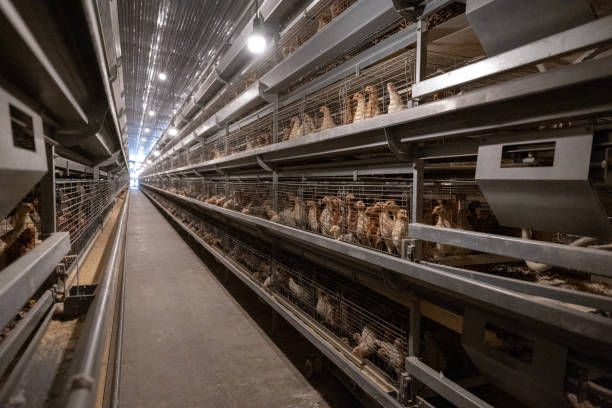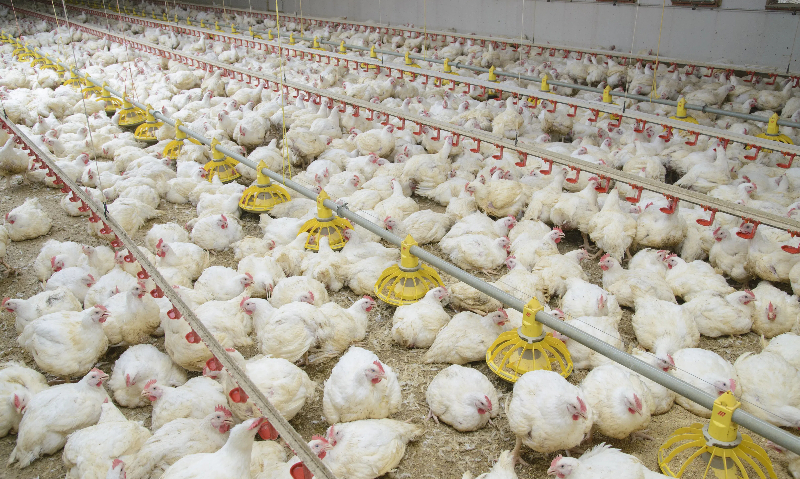Broiler Farming Business Plan in Botswana
Time : 2024-12-09
Starting a broiler farming business in Botswana is an exciting and potentially profitable venture, especially with the country’s growing demand for poultry meat. If you’ve been thinking about getting into the poultry industry, this Botswana Broiler Business Plan will guide you through the essential steps to setting up and running a successful broiler farm. Whether you are looking to start small or scale up to a commercial operation, the key to success is having a solid plan and understanding the ins and outs of broiler farming.
Let’s dive into the steps you need to follow, and don’t worry—this isn’t a complicated, jargon-filled guide. We’ll keep it straightforward and practical.
Understanding Broiler Farming in Botswana
Before jumping into your Botswana Broiler Business Plan, it’s crucial to understand the basics of broiler farming. Broilers are chickens that are specifically raised for meat production, and they grow rapidly, reaching slaughter weight in about 6 to 8 weeks. Unlike layers, which are raised for eggs, broilers are all about quick growth and efficient meat production.
In Botswana, poultry farming, particularly broiler production, has seen significant growth due to the increasing demand for chicken meat, both domestically and in the surrounding regions. With a growing population and a preference for chicken over other meats, broiler farming presents a great opportunity to enter the agricultural sector.
However, like any business, broiler farming comes with its own challenges, including competition, disease management, and high operational costs. Having a well-thought-out business plan can help you tackle these challenges head-on.
Step 1: Market Research
The first thing you need to do when creating a Botswana Broiler Business Plan is research the market. Understanding the local demand for broiler meat, pricing, and the competitive landscape is essential. In Botswana, chicken is one of the most popular meats, and the market is growing, but it’s still important to know your target customers. Are you planning to sell to local grocery stores, butcher shops, or directly to consumers? This will help you determine the scale of your operation and the best approach for marketing your products.
Key points to research include:
- Demand: How much chicken meat is consumed in your area? Is there a gap in the market for high-quality or locally produced chicken?
- Prices: What are the current prices for broiler meat? Understand both wholesale and retail prices, as well as seasonal fluctuations.
- Competition: Who are your competitors? What are they doing well, and where can you differentiate yourself?
Once you’ve done your market research, you’ll have a better idea of the scale of your broiler farm and how to position your products effectively.

Step 2: Business Structure and Licenses
Before you can start producing broilers, you need to establish your business structure. Will you run the farm as a sole proprietorship, a partnership, or a registered company? In Botswana, a registered company is often the most beneficial for larger operations, as it offers legal protection and may open doors for financing or government support.
You’ll also need to obtain the necessary licenses and permits for poultry farming. In Botswana, the Department of Veterinary Services (DVS) regulates poultry farming, and they may require you to get a permit for operating a broiler farm, especially if you’re planning to engage in large-scale production. You’ll also need to ensure that your farm meets health and safety standards, including biosecurity measures to prevent diseases.
Step 3: Choosing Your Location and Setting Up
Location is a key factor in your Botswana Broiler Business Plan. For a broiler farm, you’ll need enough space for the chickens to grow comfortably and efficiently. Ideally, the location should be close to your target market or major transportation routes, so you can easily distribute your products.
The setup for your farm includes everything from building the chicken houses to selecting the right Botswana broiler cages. When it comes to housing, you have two main options: deep litter systems or cage systems.
- Deep Litter System: This involves keeping the broilers on the ground with bedding such as sawdust, straw, or wood shavings. The advantage of this system is that it is low-cost, but it requires more labor and can result in higher feed consumption due to the chickens being more spread out.
- Cage System: Using Botswana broiler cages allows for more efficient use of space and is particularly beneficial if you’re looking to scale your operation. Cages help to keep the chickens clean, reduce the risk of disease, and ensure better management of feeding and water supply. Additionally, cages make it easier to manage waste and keep your farm hygienic.
A good Botswana broiler cage system is designed to maximize space, minimize labor, and improve productivity. When selecting cages, ensure that they provide enough room for the birds to move comfortably, have proper ventilation, and allow for easy cleaning.
Infrastructure Setup
Apart from the chicken houses or cages, you’ll also need proper infrastructure for feeding, watering, waste disposal, and disease management. You may want to invest in automated feeding and watering systems that will save time and ensure your broilers have a consistent supply of food and water.
Make sure to plan for adequate ventilation, lighting, and temperature control. Broilers grow best in temperatures between 18°C and 24°C, so you may need to invest in fans or heating systems to maintain an optimal environment, especially during the hot months.
Step 4: Sourcing Broiler Chicks and Feed
Once you’ve got the setup ready, the next step in your Botswana Broiler Business Plan is sourcing broiler chicks and feed. You can purchase day-old chicks from local hatcheries or suppliers. It’s essential to buy healthy, high-quality chicks to ensure strong growth and low mortality rates. Look for chicks that are vaccinated and free from diseases.
In terms of feed, broilers need a balanced diet rich in protein, energy, and vitamins. Commercial broiler feed is available in different stages depending on the age of the birds, and you’ll need to adjust the feed as they grow. You may also want to consider the cost of feed, as this can be one of the largest ongoing expenses in your broiler farming business.

Step 5: Health and Disease Management
Health management is crucial to the success of your broiler farm. Infections and diseases can spread quickly in poultry farms, so it’s essential to implement strict biosecurity measures from the start. This includes:
- Vaccination: Make sure your chicks are vaccinated against common poultry diseases like Newcastle disease and avian influenza.
- Quarantine: New birds should be quarantined for a period to ensure they aren’t carrying any diseases.
- Sanitation: Regularly clean and disinfect your Botswana broiler cages, feeding equipment, and any other surfaces the chickens come into contact with.
It’s also a good idea to work with a veterinarian who can provide regular health checks, advice on disease prevention, and help manage any health issues that arise.
Step 6: Marketing and Sales Strategy
Now that your broiler farm is up and running, you need to have a solid plan for selling your products. In your Botswana Broiler Business Plan, you should outline how you plan to market and distribute your broiler meat. Consider the following:
- Target Market: Will you focus on local butcheries, grocery stores, or direct-to-consumer sales? Determine who your target customers are and how you can reach them effectively.
- Pricing: Research current market prices and set competitive rates that allow for a profit margin while still appealing to consumers.
- Branding: Consider developing a brand identity, especially if you’re marketing free-range or organic chickens, as these can often command higher prices.
- Distribution: Plan your distribution network—will you deliver directly to your customers, or will you need to work with distributors?
Step 7: Financial Planning
Last but certainly not least, it’s time to crunch the numbers. A solid financial plan is essential to ensuring your broiler farm is profitable. Your Botswana Broiler Business Plan should include:
- Startup costs: Include costs for land, equipment (like Botswana broiler cages), chicks, feed, and initial operating expenses.
- Operational costs: These include ongoing expenses like feed, utilities, labor, veterinary care, and maintenance.
- Revenue projections: Estimate how much you expect to earn from your broiler sales, and calculate your break-even point.
Make sure to track your expenses and revenues carefully to ensure you’re staying on budget and turning a profit.
Conclusion
Broiler farming in Botswana offers great potential for those looking to enter the poultry industry. With a strong Botswana Broiler Business Plan, careful planning, and hard work, you can build a profitable operation. Remember to research the market, choose the right equipment like Botswana broiler cages, manage your chickens’ health, and stay on top of your finances. With the right strategy, your broiler farm can thrive in Botswana’s growing poultry market. Happy farming!











